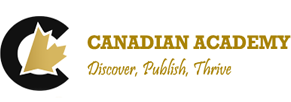Ethical breaches in Indonesian journalism are on the rise, signaling a concerning trend in moral conduct among journalists and highlighting issues in journalism education. A study aimed to develop a teaching model using local wisdom to enhance students’ understanding of journalism ethics and moral obligations. The research found that the sequential presentation of materials and the incorporation of Javanese phrases significantly improved students’ grasp of moral reasoning in journalistic practices.
As Indonesia strives to establish itself as a fledgling democracy, the crucial role of journalism in fostering public engagement, transparency, and governmental accountability cannot be overstated. Numerous studies underscore the profound impact of journalism on shaping societal perceptions and influencing public discourse. Through framing and priming strategies, the media wield significant power in directing attention to pressing issues, although the effectiveness of journalism depends heavily on audience and media characteristics.
While journalism holds the potential to impart knowledge, its influence can be both positive and negative. On one hand, media serve as powerful agents in constructing social realities, shaping audience perceptions, and influencing behaviors. On the other hand, media distortion and selective reporting can lead to misunderstandings and misinformation among the public.
In Indonesia, the media landscape has evolved into a news industry where sensationalism and partial reporting often overshadow comprehensive understanding. Studies reveal that public responses and actions are influenced by media portrayals, highlighting the importance of journalistic integrity in presenting balanced and truthful narratives.
However, achieving such integrity is challenging, especially amidst pressures to increase news value and sensationalize stories. Indonesian journalists have been criticized for engaging in practices such as information distortion, dramatization, invasion of privacy, character assassination, and exploitation.
Moreover, biases in reporting, including bombastic headlines, reliance on unnamed sources, misrepresentation of elite opinions as public sentiment, and partial presentation of information, further exacerbate ethical concerns in journalism. These issues underscore the need for improved journalism education and ethical standards.
Efforts to address these challenges include enhancing journalism curriculum to promote ethical understanding among aspiring journalists. By fostering moral reasoning and encouraging comprehensive reporting, journalism education can equip future professionals with the tools to navigate complex ethical dilemmas and uphold the integrity of their craft.
Ultimately, journalism serves as a crucial conduit for transmitting information and shaping public discourse. By upholding principles of truth and honesty, journalists can fulfill their role as guardians of democracy, providing the public with accurate and insightful perspectives on the world around them.
The introduction emphasizes the crucial need for ethical journalists to enhance the role of media in democratization processes in Indonesia. It highlights concerns raised by Paul Johnson and Anom regarding deficiencies in the journalism education system, particularly in teaching ethics. To address this issue, an experimental study seeks to devise a suitable model for teaching journalism ethics tailored to the Indonesian context. Despite journalism ethics being a mandatory subject in mass communication education, ethical violations persist among Indonesian journalists, leading to potential political turmoil.
Teaching ethics to journalism students is deemed essential as it equips them to make socially responsible decisions and uphold publication credibility. Ethical codes in journalism are increasingly questioned, with ethical breaches leading to dismissals in leading American media outlets. Journalists are urged to develop “ethical fitness” to make swift and sound ethical decisions under pressure.
The call to incorporate ethics in journalism education dates back to Jim Carey’s 1977 speech, emphasizing the need to prioritize societal duties over professional demands. However, the effectiveness of teaching journalism ethics remains uncertain, as evidenced by a rise in ethical violations globally.
Traditional teaching methods in journalism education often prioritize passive learning, lacking practical exercises. Active learning approaches are advocated to transform students into active participants in their ethical development. Journalism education should equip students with both theoretical knowledge and practical skills to navigate complex ethical dilemmas in real-world scenarios.
News reporting requires rigorous adherence to ethical standards, necessitating specialized teaching methods to hone students’ intuition, knowledge, and ethical decision-making abilities. Journalism should be examined through philosophical lenses to explore concepts like truth, objectivity, and journalistic ethics. A proposed curriculum integrates various disciplines such as constitutional law, political philosophy, and moral theory to support journalism ethics and mass communication studies.
Exercise-based teaching emerges as a preferred method for teaching journalism ethics, allowing students to engage with different ethical decision-making models and internalize the process through practice. Ultimately, the goal is to cultivate intellectually and morally grounded journalists capable of upholding ethical standards in their profession.
The experimental teaching method proves effective in enhancing students’ understanding of moral judgment, particularly in writing leads respectfully without infringing on others’ privacy as taught through Javanese phrases. The sequential arrangement of teaching materials is crucial for success, with Javanese phrases given priority and occupying the most sessions. This order greatly aids students in comprehending exercises, underscoring the significance of sequence in fostering moral reasoning comprehension and application. The author proposes that this teaching model is well-suited for teaching journalism ethics, emphasizing the utilization of local wisdom over ideologies like liberalism or communism. Prioritizing local wisdom enables students to develop moral reasoning, considering both news value and societal implications. Unlike conventional methods focusing solely on cognitive aspects, the experimental approach also enhances affective and behavioral dimensions. Acknowledging that evidence of effectiveness stems from classroom experiments, the author calls for further surveys over the next five years, including when some students become journalists, to validate results. Replication of the model in different contexts is recommended to ensure its reliability.
Source:
Martono, H. H., & Geraghty, L. (2017). Teaching journalism ethics: Constructing model for teaching journalism ethics on the basis of local wisdom to create peace journalism. Cogent Arts & Humanities, 4(1). https://doi.org/10.1080/23311983.2017.1334982
 Canadian Academy Discover, Publish, Thrive
Canadian Academy Discover, Publish, Thrive